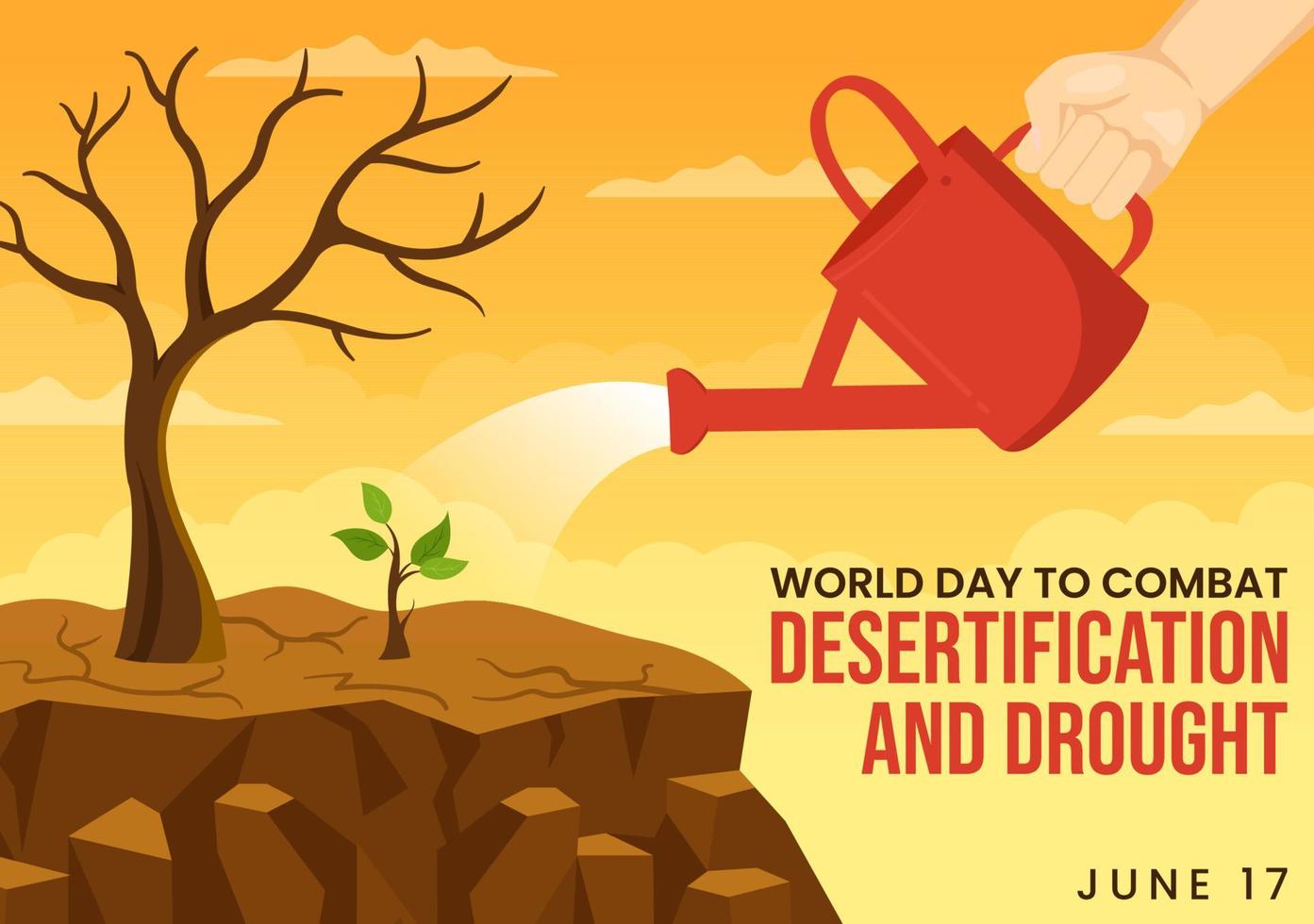Today is the World Day to Combat Desertification and Drought. The day provides an avenue for the international community to reflect on the extent and effects of the problems and measures that are needed to assuage them. During the 1992 Rio Earth Summit, the United Nations (UN) identified desertification, along with climate change and loss of biodiversity, as the greatest challenge to sustainable development. Two years later, in 1994, the UN General Assembly established the United Nations Convention to Combat Desertification (UNCCD) as the sole legally binding international agreement linking environment and development to sustainable land management and declared June 17 as “World Day to Combat Desertification and Drought” by resolution A/RES/49/115.
Desertification, land degradation and drought are among the most pressing environmental challenges of our time, with up to 40 per cent of all land area worldwide already considered degraded. This is driving forced migration and putting tens of millions of people each year at risk of displacement. This year, the theme of the day: “United for Land. Our Legacy. Our Future”, spotlights the future of land stewardship – our most precious resource – to ensure the stability and prosperity of billions of people around the world, according to the UNCDD.
In his message to mark the 2024 day, the UN Secretary-General, António Guterres, said the security, prosperity and health of billions of people relied on thriving lands supporting lives, livelihoods and ecosystems. He noted that we were today vandalising the earth that sustained us, adding that every second around four football fields of healthy land were degraded, and therefore urged governments, businesses, academics, communities and more to come together and act.
Nigeria is among the leading countries of the developing world suffering from desertification. The effects of climate change are seen in desert encroachment, especially in areas bordering the Sahel region. According to reports, Nigeria loses about 400,000 hectares of arable land every year to desert encroachment and other unsustainable human activities. The country also loses around $5.1bn annually to rapid desertification and drought in many parts of Northern Nigeria.
- Ijaw youths to Tinubu: Ignore calls for amnesty programme’s scrapping
- Drug barons recruiting officers, staff of bonded terminals – CGC
Another report by the Nigerian Meteorological Agency (NiMet) indicates that many parts of Nigeria experience drought periodically. Adamawa, Bauchi, Borno, Gombe, Jigawa, Kano, Katsina, Kebbi, Sokoto, Yobe and Zamfara are the most affected states. In Yobe, the stormy sand dunes encroach at the rate of 30 hectares annually, leaving many people homeless, thereby causing incessant migrations. In addition, it is estimated that Nigeria has lost over 90 per cent of its total forest reserve, which accounts for about 10 million hectares or 10 per cent of Nigeria’s land mass.
This is made worse by the rate of deforestation in the country due to a number of factors such as uncoordinated land use policy, urbanisation, agriculture, industrialisation and the increasing activities of rural farmers who fell trees for firewood.
The consequences of these include soil erosion, drought and food scarcity. In addition, there are also social and economic consequences, especially forced migration. Indeed, the recent challenge of insecurity, especially banditry in the North West, is attributed to this, as herders who have to find grazing land for their animals often encroach into farmlands, thus causing conflict between them and the farmers.
We at Daily Trust believe that it is time for urgent action to save the country, not only from the devastating effects of this phenomenon, but also to avoid social unrest. We note that despite several efforts by the government to end desertification, the problem persists due to the gap between the formulation of policies and the strategies of combating drought and desertification.
Therefore, there is the need for more concrete actions at the federal, state and local government levels to come up with better strategies aimed at combating desertification. Our farmers and herders must be taught how to better use the land and its resources for sustainable development.
Our policy makers must take into cognisance the effects of any policy on our land and natural resources. It is time to ensure strict implementation of sustainable environmental practices. The Nigeria Great Green Wall Agency must redouble its work of especially enlightening the ordinary Nigerians on the importance of tree planting and sustainable environmental activities. Government must encourage the use of alternative energies in cooking and other domestic activities to address such unwholesome activities as tree felling.
More importantly, Nigerians have a duty to ensure that we sustain the environment by not carrying out any activity that will degrade it and put our lives and that of the future generations in danger.

 Join Daily Trust WhatsApp Community For Quick Access To News and Happenings Around You.
Join Daily Trust WhatsApp Community For Quick Access To News and Happenings Around You.


